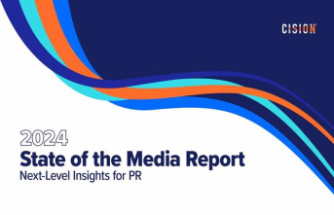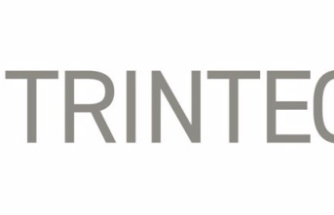You don't have to be Warren Buffett to be richer.
Nor do you need to have him hold your hand to get there.
Yet, a recent study shows most Americans are deeply uncertain about handling their money, and they'd like Warren Buffett to help them figure it out.
If you are among them, take a deep breath and reassure yourself. Remember, you don't need Thomas Edison to help you turn on the lights. You don't need Oscar de la Renta to help you get dressed. You don't need Steve Jobs to help you make phone calls or search for information. And you don't need Julia Child to help you bake a cake.
It might be nice, but it's not crucial.
And you don't need Buffett for investing. Perhaps you'd like him to appear like your fairy godmother, wave a magic wand and turn your humble 401(k) or IRA into a pile of millions. But the study just done by Age Wave and Merrill Lynch shows that most people aren't necessarily looking for millions. They simply want to be more confident that they're on the right track so they can continue to live comfortably within their means now and later.
How to make your first million the Warren Buffett way Tribune news servicesIf you’re an investor, a business person or someone striving for financial greatness, Warren Buffett might be the perfect role model.
Buffett is known for his holding company Berkshire Hathaway, which owns brands such as Duracell, Fruit of the Loom and Geico. With a net worth estimated by Forbes...
If you’re an investor, a business person or someone striving for financial greatness, Warren Buffett might be the perfect role model.
Buffett is known for his holding company Berkshire Hathaway, which owns brands such as Duracell, Fruit of the Loom and Geico. With a net worth estimated by Forbes...
(Tribune news services)About 81 percent have no idea what they will need for retirement. They are torn between what they think they should be doing with their money and what they're actually doing. For example, the survey found that people on average think they should be saving 25 percent of their income for the future. Yet, they're actually saving 5.5 percent.
They know they could cut back on some spending, but that doesn't necessarily mean they do it. They second-guess their money moves more than anything else — more than rethinking what they've done on their jobs or how they've treated their family and friends. And they don't talk about it. More than 70 percent consider income and saving a taboo topic.
So give yourself a break. Although 65 percent suggest they get paralyzed because the language of investing and financial planning is confusing, you don't need Warren Buffett to rescue you.
Your forefathers learned words like light bulb after Thomas Edison's inventing spree. The current generation learned "app" and "FaceTime" as they handled new phones. So you can certainly learn the few words you need to invest your money effectively.
If you admire Buffett, learn one of his favorite vocabulary terms: That term is "index fund." It's a no-brainer mutual fund that Buffett suggests people use instead of seeking experts to pick the biggest winning stocks of the stock market. Why does Buffett suggest this? Because most investing pros fall short when it comes to picking winners and avoiding losers in the stock market. Index funds don't try to pick winners and avoid losers. They just buy all the stocks that make up the stock market or much of the stock market, and then hold on through good times and bad. You can be ignorant about the stock market and still be a successful investor by buying a no-brainer index fund known as "a total stock market index fund" or a "Standard & Poor's 500" or "S&P 500 index fund."
Millennials: Here's how to jump-start your saving habits Gail MarksJarvisIf you're in your 20s or 30s there's a strong chance that you are getting puny paychecks that never seem to stretch far enough, and you may look at everything your baby boomer parents have and wonder if you'll ever catch up.
But that doesn't mean you're going to feel poor forever.
As a generation,...
If you're in your 20s or 30s there's a strong chance that you are getting puny paychecks that never seem to stretch far enough, and you may look at everything your baby boomer parents have and wonder if you'll ever catch up.
But that doesn't mean you're going to feel poor forever.
As a generation,...
(Gail MarksJarvis)Then, you need one other investment: bonds. You can buy bonds in a 401(k) or IRA through a "total bond market index fund" if you want to make this really simple.
Want even less bother than picking two funds? Then learn the term "balanced fund." This fund gives you stocks and bonds — typically putting about 60 percent of your money into stocks so the money grows with the power of the stock market, and putting about 40 percent into bonds so you have insulation when the stock market goes through one of its nasty spells. A balanced fund is sweet because it provides you with one-stop shopping for a 401(k) or IRA.
Some 401(k)s don't have balanced funds. If your 401(k) doesn't have one, another type of fund will do. It's called a "target date fund." This is a fund that is tailored to the general time frame in which you'll retire. Pick one that includes a date around when you will retire, and that's all you will need year in and year out because a fund manager will continually buy a mixture of stocks and bonds, getting more cautious as you approach retirement.
If your 401(k) target date fund happens to be one that uses index funds, Buffett would be pleased. But not all do. Still, don't let that stop you from this simple approach to investing. Some target date funds may not be exactly what Buffett has in mind, but they will make you a successful investor even if you don't know anything about the stock market.
Think you missed the Dow 20,000 party? If you have a 401(k), you likely benefited Gail MarksJarvisDo you have Dow 20,000 envy?
Take heart, you might be richer than you think.
You may have wished during all the hype over the Dow Jones industrial average hitting 20,000 that you had been buying stocks.
But you may actually own stocks without knowing it. If you've been dutifully putting a little...
Do you have Dow 20,000 envy?
Take heart, you might be richer than you think.
You may have wished during all the hype over the Dow Jones industrial average hitting 20,000 that you had been buying stocks.
But you may actually own stocks without knowing it. If you've been dutifully putting a little...
(Gail MarksJarvis)If you think you need a pro to figure out when to move in and out of the stock market, forget it. Repeated studies by academic experts show that even the brainiest of the pros can't figure this out with any regularity. It's more important to pick mutual funds that charge you low fees, and low fees are the key reason why index funds tend to be outstanding. Find low fees by looking at one number called the "expense ratio," or ask your 401(k) call center 800 number. What's low? A 0.50 percent fee is a better deal than 1 percent, and 0.18 percent is even better. Imagine investing $10,000 one time and earning 7 percent a year for 20 years. With expenses at 0.18 percent, you'd end up with about $37,300. With 1 percent in expenses, you'd just end up with $31,600.
How do you know if you are saving enough?
As a rule of thumb, if you start saving and investing 10 percent of your pay every year — beginning with your first job around 21 — you should be OK. If you didn't do that in your 20s, by your 30s, you will need to save 12 to 15 percent. If you are close to retirement, you can apply a simple calculation: At retirement you will want 10 to 12 times your last annual income saved. But these are rules of thumb. To get a better sense of your own future, try a retirement income calculator such as www3.troweprice.com/ric/ricweb/public/ric.do or choosetosave.org/ballpark/.
What if you aren't saving enough?
Try an exercise used by Deerfield financial planner Sue Stevens. Each year, she looks at her credit card account and bank accounts and asks herself: "What did I buy that did not give me pleasure?" Then, she stops buying that item or items, calculates the savings, and immediately routes the money she's going to save into her retirement accounts. Be aware of the entire process. People shoot themselves in the foot by looking for savings, cutting spending on one item, but then letting the money float away anyway through inattention. The only way to make a cut in spending work is to immediately go to your benefits office or the website for your 401(k) or IRA and change the amount you will distribute automatically from your paycheck each payday.
It's a simple process that anyone can do, and you don't need Warren Buffett to do it.
gmarksjarvis@chicagotribune.com
Twitter @gailmarksjarvis
Our editors found this article on this site using Google and regenerated it for our readers.













